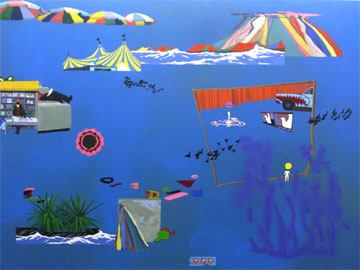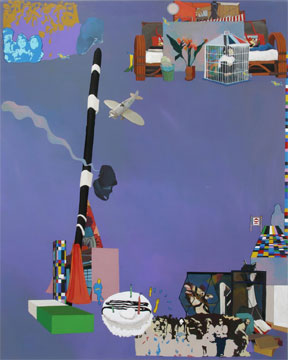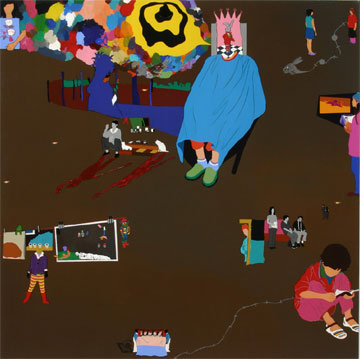Am I trivial? or Did you stop questioning?
Iding my time away on the street or in the cafeteria, I observed objects such as people, air, small insects or dust. The meaning of objects consisted of the context to which they belonged. Out of this onlooker's experience, I imported two themes into my work: the importance of the context and the power of onlookers. First, though some objects were common in everyday place, they captured distinctive meanings in certain places. The space decides the function of the objects within. At times, I could not realize what they signify in certain places. I paint to understand the gap between the fleeting and lasting aspects of objects. Second, as indifferent, onlookers stay in the middle of seeing and not seeing. Also, though indifferent, they possess the potential to disentangle the seemingly solid logic of insiders. The boundary where onlookers stay works as both the end of something and the center between two worlds. By questioning why certain things are lost, the boundary includes room for change. Therefore, combining the issues of the context and onlookers, I paint.
Specifically, I import the trivial in my work. I create a situation where the trivial is spoken publicly. My work starts from trivial things that I observed from an onlooker's viewpoint. I detach the original contexts from diverse images and relocate them in another background. Thus, images are juxtaposed in an accidental space and create irony. In other words, trivia in my paintings reveal that objects are often lost amidst the space of meaninglessness by our conventional viewpoints.
- Choi Soo-jung






















